“Contrary to some people's belief, I am convinced that no one wants to see Arlington fail," Principal Stan Law says. "And I certainly didn't take the job to fail."
Arlington Principal Stan Law talks with students as the school lets out Feb. 4, 2016, the day after a popular student's shooting death. Shortly after, Law calls staff together to thank them for making a "tough day, a great day for the kids ... tomorrow our goal is to return to normalcy as much as possible." Photo: Eric Weddle/WFYI Public Media
This is part of the series A New Day about Arlington Community High School.
INDIANAPOLIS -- On the afternoon of Feb. 3, junior Jaylan Murray was shot to death a few blocks from Arlington Community High School. Murray was a football player and an honor roll student, one of the school's bright stars.
News of the 17-year-old’s death spread quickly across social media. The next morning, students walked into Arlington knowing their friend, teammate and fellow Golden Knight was gone. The school responded immediately: an assembly was held before classes began to let students mourn and explain how they’d all get through the day.
Afterward, assistant principal Debra Ward and dean Art Dumis stood in the quiet school entryway. Nearby students hugged each other and cried.
“He made a bonding with a lot of our kids,” Ward says. “We’ve got a lot of adults here that are upset today, man. I have worked with at least five of them crying on my shoulder.”
Six months ago, you wouldn’t have seen this calm, this care, or even these kind of tears at Arlington.
When the school reopened in August, it was starting from scratch and students had little trust for the brand new staff.
A state takeover plan collapsed after a charter school company hired to manage and improve Arlington quit after three years. The chronically failing school was returned to Indianapolis Public Schools yet the transition seemed troubled from the start.
Keys to the building were handed back to IPS from the charter company, Tindley Accelerated Schools, a month before classes began August 1. The new staff, many first-time educators, meet together just days before the first bell rang.
Soon after that, it became clear the school was wildly understaffed to handle remediation needs and widespread behavior problems rolling the hallways and classrooms.
Some students refused to go to class, instead roaming or hiding in the expansive 380,000 square-foot building. Others fought each other and even had physical altercations with teachers. Thousands of dollars worth of damage was done to the building.
'Far Too Many Fs'
Enrollment peaked at 621 made up of students who weathered years of management changes at Arlington, plus others from its northeastside neighborhood, charter schools, other IPS schools, and from out of state. It's a mix of personalities, social groups and academic preparation.
By Oct. 20, Principal Stan Law had enough.
Over several hours that day each grade, seventh through 12th, was called to the auditorium to hear his ultimatum: the nonsense must end.
Arlington Principal Stan Law gives his "reboot" talk to the seven grade on Oct. 20, 2015 in the school's mini-auditorium. After warning students to stop pulling the fire alarm and damaging the building, the alarm is pulled somewhere outside the auditorium. Photo: Eric Weddle/WFYI
Law, a Gary native, is Navy veteran and a 20-year educator. He’s spent the last 15 years in IPS, mostly recently as the Shortridge Magnet High School principal. His uniform is a suit and a colorful bow tie. He’s wearing it as he lays into the seventh grade.
“Boys ... kicking, and tripping and smacking and knocking books over, kicking over trashcans, dumping over,” Law tells them. “I’ve never seen this, this kind of behaviors before. But if someone came in here and called you all wild -- animals -- you’d be upset and angry and you should be.”
There are far too many failing grades, he says, nearly more than he’s seen in his career.
“And most of your Fs come from two reasons: one, you are not there; two, you are not prepared.”
Law’s hardline is tempered by humor and mostly speaking to and with the students -- not at them. Find pride in this school, don’t tear it up, he pleads, and learn to better yourself.
The day is called a “reboot” -- going forward students and staff have new expectations and policies to follow. It’s the start of “positive behavioral interventions and supports” or PBIS -- a method expanding across IPS for how teachers manage their classrooms through proactive strategies and discipline.
The next day biology teacher Shelby Overton goes over some basics: dress code (no hoodies is emphasized), how to walk down the hall (stay on the right side) and what it means to be prepared for class (for starters, bring a pencil).
“So there are expectations for you. And they may not have been spelled out for you in the beginning of the school year, that’s kinda crazy right?,” Overton says. “But now they are spelling them out for you.”
‘Wake Up Call’
But a few weeks later at a staff meeting, Law tells the teachers they’re falling short.
Some are not issuing hall passes, others aren’t documenting dress code or behavior violations, he says. Some send students into the hall for small problems, instead of keeping them in the class, then the kids run off down the hallway.
“Everyone is lamenting about what’s wrong but what’s wrong is the adults can’t do what they are suppose to do,” he says standing in the media center annex as the staff sit around tables. “It goes back to commitment, it goes back to courage.”
Yes, Law says, the school has been ripped up and all the rules broken. But it’s time to get over it. Too many students are failing classes because some teachers aren’t trying hard enough.
“Do you believe it is your duty to help them get better?,” he asks. "I can't do this without you."
Teacher Angela Smith talks with a student as he leaves her reading class on Jan. 21, 2016. Smith is known for calling her students "beautiful people" as she pushes them to improve their reading and English skills. Smith's engaging and colorful designed classroom has been called a model for other Arlington teachers to follow. Photo: Eric Weddle/WFYI Publi Media.
Later, Law explains the meeting as a “wake up call,” because some teachers held on to the tumultuous first weeks of school that prevented everyone from focusing on instruction.
It was a period, Law says, that he and others were blindsided by but it was no longer an excuse to not adapt.
“A lot of people took hold of that and some didn’t. It has created some issues, some staffing issues we will have to deal with. But in the end, you want the right people on the bus," he says about finding educators who desire to work in a difficult, urban school. "Rome was not built in a day. Arlington’s achievement will not go up in one year, but it can be better.”
And soon after, some things do get better.
A handful of the 16 additional staffing positions, approved by IPS central office because of the widespread problems, are being hired: an additional dean, a permanent substitute teacher and special education teachers.
The middle school students are relocated and consolidated to a single second-floor hallway where staff can keep a better eye on them. Nearly the entire first floor, a hotspot where younger students often roam freely, is shut down.
‘Teaching The Teachers, Modeling For Students’
For a few weeks after the hallway move Tina Ahlgren, a math coach for Arlington teachers, takes on double-duty. She’s sitting at a desk at one end of the new middle school hallway. She’s part hall monitor and ethnographer -- studying student’s faces, hair styles, and attitudes, looking out for those who need a little push to stay on track.
“It is 11:48 you should already be in your class, you ought to be moving faster than that,” Ahlgren yells out as students mosey by her. “Act like there’s fire in your pants.”
Brian Dinkins -- an 1996 Arlington graduate and the recently hired additional dean -- comes by to ask Ahlgren how often she’s seen one particular student in the hall.
Ahlgren rattles off six times. Dinkins is incredulous.
“And 12:22,” she adds.
“Are you getting whose classes they are coming out of?,” he asks. “That would probably be more helpful for us.”
Dean Brian Dinkins talks with a student about the acceptable way to behave in class on Jan. 21, 2016. Dinkins, an Arlington graduate, has worked in traditional public and charter schools. IPS provided additional resources for Arlington to hire a second dean because of the widespread problems during the first months of school. Photo: Eric Weddle/WFYI Public Media
Ahlgren is assisting the deans -- Dinkins and Dumis -- and others to figure out which students are managing to slip out of class. And from there, the deans will track down these students and give teachers some support and pointers for classroom discipline.
“So we’ve gotten to a place where we’ve forced better compliance with getting to class. But now once we are in class, how do we stay in class? How do we be successful while we are there?,” says Ahlgren, the IPS 2014 teacher of the year. “Part of that is teaching the teachers, part of that is modeling for the students what it looks like to be a student.”
Improving academics and instruction remains Arlington’s steepest challenge. Nearly half the students have special learning needs or behavior plans that require extra help in the classroom. Yet sometimes aides and others giving this additional support are pulled away to cover unfilled positions or for sick teachers.
It’s a survival method that keeps the habitually short-staffed school from functioning at full capacity.
Then there’s figuring out how to ease students’ anxiety or aversion to testing taking -- such as the end of course exam, or ECA. In December some attempted to hide out in the building rather than take the test required for graduation.
‘A Slow Process’
As academic instruction is retooled in some classrooms to better reach students, the social and cultural sides of Arlington are slowly coming together.
There’s now three additional staff, known as behavior specialists, whose job is to basically figure out why a student is acting out and mentor them to stay out of trouble. Law and Dumis attribute the dramatic reduction in behavior problems during recent months to the presence and relationship building of the two men and woman walking the halls daily.
Football, basketball and other sports, plus cheerleaders and a dance team, and have generated a lot of excitement and Golden Knight spirit.
Senior Alyssa Helm dances as Arlington's Golden Knight mascot during the Feb. 12, 2016 boys basketball game against rivals Broad Ripple High School. Helm, who helped managed the football team, says she refocused herself on school after support from Arlington staff. Arlington lost the game 61-68 but currently has a 18-5 record. Photo: Eric Weddle/WFYI Public Media
Arlington’s alumni have become such vocal advocates, often through financial and emotional support to sport teams and student activities, that they’ve been given office space in the school. IPS recently profiled alumni president Tim Bass for its website.
It’s now not uncommon to see hugs and fist bumps between students and their teachers, the staff and building police.
As assistant principal Ward stands in the cafeteria in January, students joke with her and easily handover their forbidden clothing -- the hoodies. That alone, she says, is a sign of progress.
“I think it is that, we are finally building these relationships,” she says. “And it has been a slow process.”
And it may be paying off. The day after Jaylan Murray’s death in February, students wanted to be together at the school, says Alyssa Helm. It feels like home to them now.
“It is good to be here. Because, he was here,” says Helm, a senior who has refocused herself to graduate after tough love from Law and a staff mentor. “This is his family. It’s very important for everybody to be here today.”
Murray’s death remains unsolved, according to an Indianapolis Metropolitan Police Department spokesman, and the preliminary motive is believed to be robbery.
‘No One Wants To See Arlington Fail’
But despite the relationship building, there’s still a long way to go for Arlington’s academic achievement to improve -- and you can feel it in the school.
In December, only 11 percent of students passed the math exam required for graduation and 18 percent passed the English. The test will be offered again this spring.
During a Feb. 17 meeting for seniors, the class is warned there’s still too much skipping, poor attendance and ignoring of afterschool remediation for everyone to graduate.
In just the past few months, four first-year teachers quit because they had concerns about their own safety and ability to teach at Arlington. Another teacher quit after a week or so on the job.
Assistant principal Debra Ward and principal Stan Law read a text message about an incident with a student on Jan. 21, 2016 in the middle school hallway. Arlington staff stay in contact throughout the day with texts and two-way radios. Photo: Eric Weddle/WFYI Public Media
Four teaching positions remain unfilled, including biology and chemistry. Arlington is likely competing with other IPS high schools for those teacher applicants. Crispus Attucks is seeking eight permanent educators and George Washington needs one. Among the eight IPS high schools there are 25.5 total teaching positions open, according to the district.
Arlington is receiving extra support from IPS as part of the "transformation zone," a new method to focus resources on struggling schools. Arlington is one of seven schools where staff get special training and coaching.
Last year the State Board of Education approved a $500,000 contract for the company Mass Insight to work with the school, as part of the district's plan. The company has been credited with improvements at the Evansville school district.
This summer a few Arlington educators will be trained by Mass Insight to become AP teachers.
Law knows he running out of time this academic year to improve the classrooms, hire permanent teachers, and ensure that the students behind today can graduate tomorrow. But he says he won’t give up and he expects nothing less of his staff.
“I work 16, 17 18 hours a day, including the weekend. I am exhausted but I'll come back and do it in the next day -- no regrets. When I was a teacher, I did the same thing. This is my vocation, this is what I am called to do,” Law says. “I am convinced, contrary to some people's belief, I am convinced that no one wants to see Arlington fail. And I certainly didn't take the job to fail. And I am not used to failing.”
Contact WFYI education reporter Eric Weddle at eweddle@wfyi.org or call (317) 614-0470. Follow on Twitter: @ericweddle.
 DONATE
DONATE




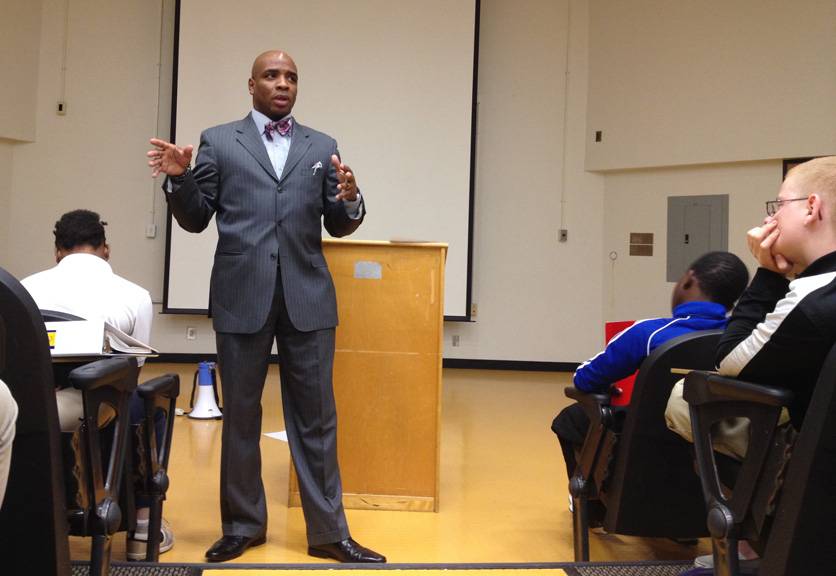
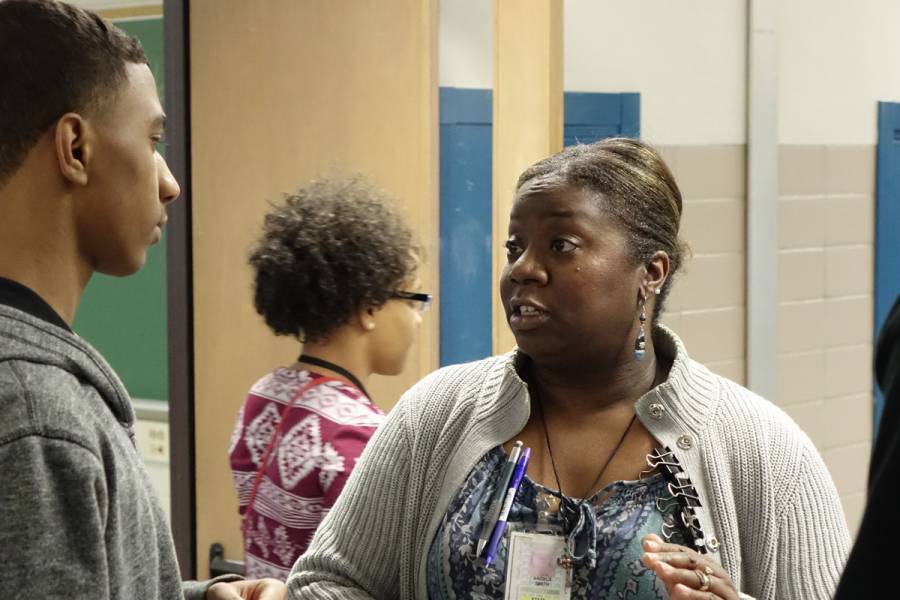
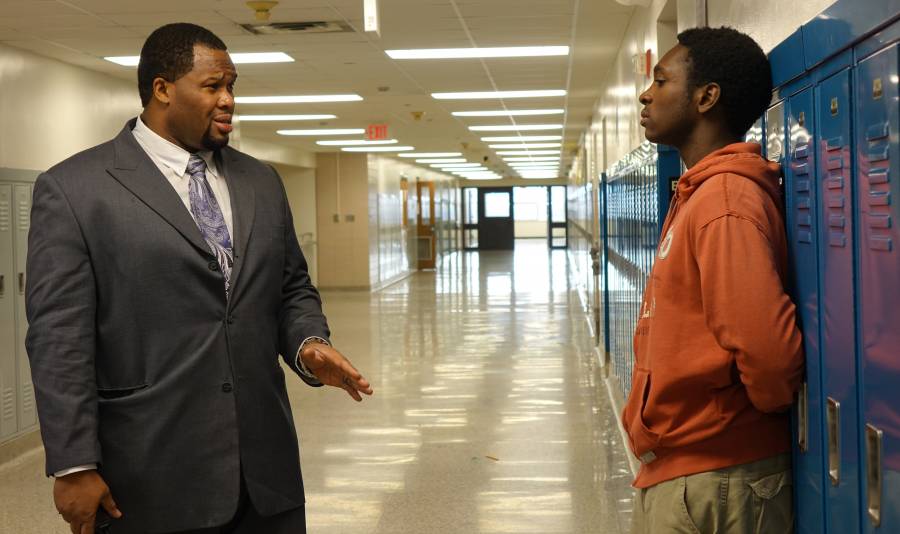
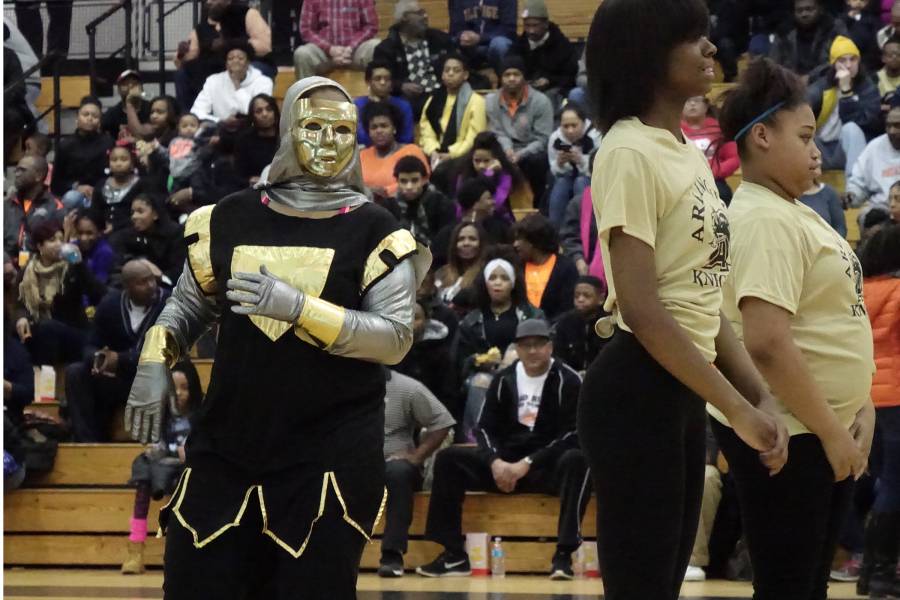



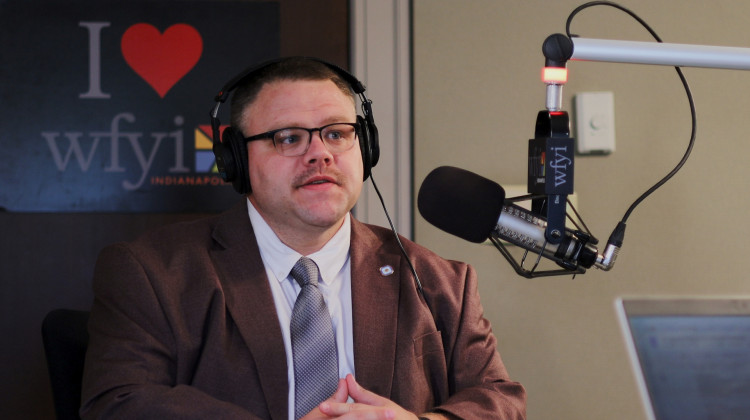

 Support WFYI. We can't do it without you.
Support WFYI. We can't do it without you.